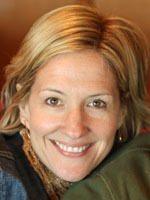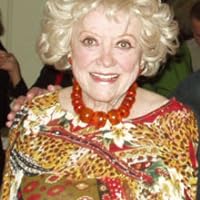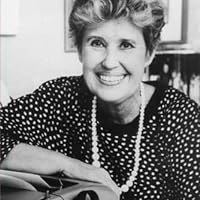Parenting Quotes
Quotes tagged as "parenting"
Showing 91-120 of 3,162

“Don't stand unmoving outside the door of a crying baby whose only desire is to touch you. Go to your baby. Go to your baby a million times. Demonstrate that people can be trusted, that the environment can be trusted, that we live in a benign universe.”
―
―
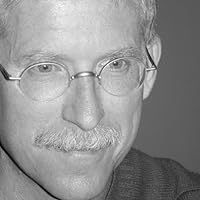
“I used to believe my father about everything but then I had children myself & now I see how much stuff you make up just to keep yourself from going crazy.”
― Story People
― Story People

“By loving them for more than their abilities we show our children that they are much more than the sum of their accomplishments.”
― Smart Parenting for Smart Kids: Nurturing Your Child's True Potential
― Smart Parenting for Smart Kids: Nurturing Your Child's True Potential

“Parents who discipline their child by discussing the consequences of their actions produce children who have better moral development , compared to children whose parents use authoritarian methods and punishment.”
― Zero Degrees of Empathy: A New Theory of Human Cruelty
― Zero Degrees of Empathy: A New Theory of Human Cruelty

“While I pressed the tissue to my face, Beck said, “Can I tell you something? There are a lot of empty boxes in your head, Sam.”
I looked at him, quizzical. Again, it was a strange enough concept to hold my attention.
“There are a lot of empty boxes in there, and you can put things in them.” Beck handed me another tissue for the other side of my face.
My trust of Beck at that point was not yet complete; I remember thinking that he was making a very bad joke that I wasn’t getting. My voice sounded wary, even to me. “What kinds of things?”
“Sad things,” Beck said. “Do you have a lot of sad things in your head?”
“No,” I said.
Beck sucked in his lower lip and released it slowly. “Well, I do.”
This was shocking. I didn’t ask a question, but I tilted toward him.
“And these things would make me cry,” Beck continued. “They used to make me cry all day long.”
I remembered thinking this was probably a lie. I could not imagine Beck crying. He was a rock. Even then, his fingers braced against the floor, he looked poised, sure, immutable.
“You don’t believe me? Ask Ulrik. He had to deal with it,” Beck said. “And so you know what I did with those sad things? I put them in boxes. I put the sad things in the boxes in my head, and I closed them up and I put tape on them and I stacked them up in the corner and threw a blanket over them.”
“Brain tape?” I suggested, with a little smirk. I was eight, after all.
Beck smiled, a weird private smile that, at the time, I didn’t understand. Now I knew it was relief at eliciting a joke from me, no matter how pitiful the joke was. “Yes, brain tape. And a brain blanket over the top. Now I don’t have to look at those sad things anymore. I could open those boxes sometime, I guess, if I wanted to, but mostly I just leave them sealed up.”
“How did you use the brain tape?”
“You have to imagine it. Imagine putting those sad things in the boxes and imagine taping it up with the brain tape. And imagine pushing them into the side of your brain, where you won’t trip over them when you’re thinking normally, and then toss a blanket over the top. Do you have sad things, Sam?”
I could see the dusty corner of my brain where the boxes sat. They were all wardrobe boxes, because those were the most interesting sort of boxes — tall enough to make houses with — and there were rolls and rolls of brain tape stacked on top. There were razors lying beside them, waiting to cut the boxes and me back open.
“Mom,” I whispered.
I wasn’t looking at Beck, but out of the corner of my eye, I saw him swallow.
“What else?” he asked, barely loud enough for me to hear. “The water,” I said. I closed my eyes. I could see it, right there, and I had to force out the next word. “My …” My fingers were on my scars.
Beck reached out a hand toward my shoulder, hesitant. When I didn’t move away, he put an arm around my back and I leaned against his chest, feeling small and eight and broken.
“Me,” I said.”
― Forever
I looked at him, quizzical. Again, it was a strange enough concept to hold my attention.
“There are a lot of empty boxes in there, and you can put things in them.” Beck handed me another tissue for the other side of my face.
My trust of Beck at that point was not yet complete; I remember thinking that he was making a very bad joke that I wasn’t getting. My voice sounded wary, even to me. “What kinds of things?”
“Sad things,” Beck said. “Do you have a lot of sad things in your head?”
“No,” I said.
Beck sucked in his lower lip and released it slowly. “Well, I do.”
This was shocking. I didn’t ask a question, but I tilted toward him.
“And these things would make me cry,” Beck continued. “They used to make me cry all day long.”
I remembered thinking this was probably a lie. I could not imagine Beck crying. He was a rock. Even then, his fingers braced against the floor, he looked poised, sure, immutable.
“You don’t believe me? Ask Ulrik. He had to deal with it,” Beck said. “And so you know what I did with those sad things? I put them in boxes. I put the sad things in the boxes in my head, and I closed them up and I put tape on them and I stacked them up in the corner and threw a blanket over them.”
“Brain tape?” I suggested, with a little smirk. I was eight, after all.
Beck smiled, a weird private smile that, at the time, I didn’t understand. Now I knew it was relief at eliciting a joke from me, no matter how pitiful the joke was. “Yes, brain tape. And a brain blanket over the top. Now I don’t have to look at those sad things anymore. I could open those boxes sometime, I guess, if I wanted to, but mostly I just leave them sealed up.”
“How did you use the brain tape?”
“You have to imagine it. Imagine putting those sad things in the boxes and imagine taping it up with the brain tape. And imagine pushing them into the side of your brain, where you won’t trip over them when you’re thinking normally, and then toss a blanket over the top. Do you have sad things, Sam?”
I could see the dusty corner of my brain where the boxes sat. They were all wardrobe boxes, because those were the most interesting sort of boxes — tall enough to make houses with — and there were rolls and rolls of brain tape stacked on top. There were razors lying beside them, waiting to cut the boxes and me back open.
“Mom,” I whispered.
I wasn’t looking at Beck, but out of the corner of my eye, I saw him swallow.
“What else?” he asked, barely loud enough for me to hear. “The water,” I said. I closed my eyes. I could see it, right there, and I had to force out the next word. “My …” My fingers were on my scars.
Beck reached out a hand toward my shoulder, hesitant. When I didn’t move away, he put an arm around my back and I leaned against his chest, feeling small and eight and broken.
“Me,” I said.”
― Forever

“He could not construct for the child's pleasure the world he'd lost without constructing the loss as well and he thought perhaps the child had known this better than he.”
― The Road
― The Road
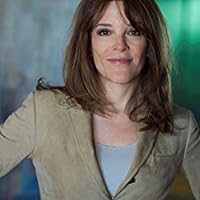
“There is no single effort more radical in its potential for saving the world than a transformation of the way we raise our children.”
―
―
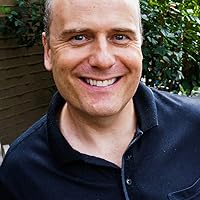
“If the sound of happy children is grating on your ears, I don't think it's the children who need to be adjusted.”
―
―

“Dads. It’s time to show our sons how to properly treat a woman. It’s time to show our daughters how a girl should expect be treated. It’s time to show forgiveness and compassion. It’s time to show our children empathy. It’s time to break social norms and teach a healthier way of life! It’s time to teach good gender roles and to ditch the unnecessary ones. Does it really matter if your son likes the color pink? Is it going to hurt anybody? Do you not see the damage it inflicts to tell a boy that there is something wrong with him because he likes a certain color? Do we not see the damage we do in labeling our girls “tom boys” or our boys “feminine” just because they have their own likes and opinions on things? Things that really don’t matter?”
― Single Dad Laughing: The Best of Year One
― Single Dad Laughing: The Best of Year One
“If you can control your behavior when everything around you is out of control, you can model for your children a valuable lesson in patience and understanding...and snatch an opportunity to shape character.”
― I Am a Mother
― I Am a Mother
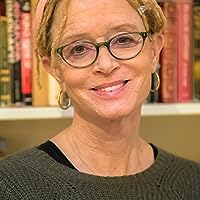
“It's so awful, attacking your child. It's the worse thing I know, to shout loudly at this 50 lb. being with his huge trusting brown eyes. It's like bitch-slapping E.T.”
― Traveling Mercies: Some Thoughts on Faith
― Traveling Mercies: Some Thoughts on Faith

“My father liked me, when I wasna being an idiot. And he loved me, too -- enough to beat the daylights out of me when I was being an idiot. Jamie Fraser”
― Outlander
― Outlander

“So many people think that they are not gifted because they don’t have an obvious talent that people can recognize because it doesn’t fall under the creative arts category—writing, dancing, music, acting, art or singing. Sadly, they let their real talents go undeveloped, while they chase after fame. I am grateful for the people with obscure unremarked talents because they make our lives easier---inventors, organizers, planners, peacemakers, communicators, activists, scientists, and so forth. However, there is one gift that trumps all other talents—being an excellent parent. If you can successfully raise a child in this day in age to have integrity then you have left a legacy that future generations will benefit from.”
―
―

“What do we say to a guest who forgets her umbrella? Do we run after her and say "What is the matter with you? Every time you come to visit you forget something. If it's not one thing it's another. Why can't you be like your sister? When she comes to visit, she knows how to behave. You're forty-four years old! Will you never learn? I'm not a slave to pick up after you! I bet you'd forget your head if it weren't attached to your shoulders." That's not what we say to a guest. We say "Here's your umbrella, Alice," without adding "scatterbrain."
Parents need to learn to respond to their children as they do to guests.”
― Between Parent and Child
Parents need to learn to respond to their children as they do to guests.”
― Between Parent and Child

“Maybe raising children was just giving them the things you loved most in the world and hoping that they loved them too.”
― Nothing to See Here
― Nothing to See Here

“In the United States today, there is a pervasive tendency to treat children as adults, and adults as children. The options of children are thus steadily expanded, while those of adults are progressively constricted. The result is unruly children and childish adults. ”
―
―

“It's not only children who grow. Parents do too. As much as we watch to see what our children do with their lives, they are watching us to see what we do with ours. I can't tell my children to reach for the sun. All I can do is reach for it, myself.”
―
―

“We pretend that we know our children, because it's easier than admitting the truth--from the minute that cord is cut, they are strangers. It's far easier to tell yourself your daughter is still a little girl than to see her in a bikini and realize she has the curves of a young woman; it's safer to say you're a good parent who has all the right conversations about drugs and sex than to acknowledge there are a thousand things she would never tell you.”
― Change of Heart
― Change of Heart

“One reason we have children I think is to learn that parts of ourselves we had given up for dead are merely dormant and that the old joys can re emerge fresh and new and in a completely different form.”
―
―

“The best parenting advice I ever got was from a labor nurse who told me the following:
1. After your baby gets here, the dog will just be a dog.
2. The terrible twos last through age three.
3. Never ask your child an open-ended question, such as "Do you want to go to bed now?" You won't want to hear the answer, believe me. "Do you want me to carry you upstairs, or do you want to walk upstairs to go to bed?" That way, you get the outcome you want and they feel empowered.”
―
1. After your baby gets here, the dog will just be a dog.
2. The terrible twos last through age three.
3. Never ask your child an open-ended question, such as "Do you want to go to bed now?" You won't want to hear the answer, believe me. "Do you want me to carry you upstairs, or do you want to walk upstairs to go to bed?" That way, you get the outcome you want and they feel empowered.”
―

“We all have the best laid plans for our children, and they go and ruin it all by growing up any way they want to. What the hell was it all for, then? (Real Life and Liars)”
―
―
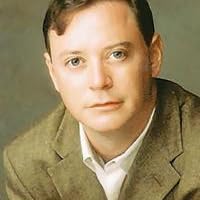
“To look deep into your child's eyes and see in him both yourself and something utterly strange, and then to develop a zealous attachment to every aspect of him, is to achieve parenthood's self-regarding, yet unselfish, abandon. It is astonishing how often such mutuality had been realized - how frequently parents who had supposed that they couldn't care for an exceptional child discover that they can. The parental predisposition to love prevails in the most harrowing of circumstances. There is more imagination in the world than one might think.”
― Far from the Tree: Parents, Children, and the Search for Identity
― Far from the Tree: Parents, Children, and the Search for Identity

“Training moments occur when both parents and children do their jobs. The parent's job is to make the rule. The child's job is to break the rule. The parent then corrects and disciplines. The child breaks the rule again, and the parent manages the consequences and empathy that then turn the rule into reality and internal structure for the child.”
―
―

“Had I catalogued the downsides of parenthood, "son might turn out to be a killer" would never have turned up on the list. Rather, it might have looked something like this:
1. Hassle.
2. Less time just the two of us. (Try no time just the two of us.)
3. Other people. (PTA meetings. Ballet teachers. The kid's insufferable friends and their insufferable parents.)
4. Turning into a cow. (I was slight, and preferred to stay that way. My sister-in-law had developed bulging varicose veins in her legs during pregnancy that never retreated, and the prospect of calves branched in blue tree roots mortified me more than I could say. So I didn't say. I am vain, or once was, and one of my vanities was to feign that I was not.)
5. Unnatural altruism: being forced to make decisions in accordance with what was best for someone else. (I'm a pig.)
6. Curtailment of my traveling. (Note curtailment. Not conclusion.)
7. Dementing boredom. (I found small children brutally dull. I did, even at the outset, admit this to myself.)
8. Worthless social life. (I had never had a decent conversation with a friend's five-year-old in the room.)
9. Social demotion. (I was a respected entrepreneur. Once I had a toddler in tow, every man I knew--every woman, too, which is depressing--would take me less seriously.)
10. Paying the piper. (Parenthood repays a debt. But who wants to pay a debt she can escape? Apparently, the childless get away with something sneaky. Besides, what good is repaying a debt to the wrong party? Only the most warped mother would feel rewarded for her trouble by the fact that at last her daughter's life is hideous, too.)”
― We Need to Talk About Kevin
1. Hassle.
2. Less time just the two of us. (Try no time just the two of us.)
3. Other people. (PTA meetings. Ballet teachers. The kid's insufferable friends and their insufferable parents.)
4. Turning into a cow. (I was slight, and preferred to stay that way. My sister-in-law had developed bulging varicose veins in her legs during pregnancy that never retreated, and the prospect of calves branched in blue tree roots mortified me more than I could say. So I didn't say. I am vain, or once was, and one of my vanities was to feign that I was not.)
5. Unnatural altruism: being forced to make decisions in accordance with what was best for someone else. (I'm a pig.)
6. Curtailment of my traveling. (Note curtailment. Not conclusion.)
7. Dementing boredom. (I found small children brutally dull. I did, even at the outset, admit this to myself.)
8. Worthless social life. (I had never had a decent conversation with a friend's five-year-old in the room.)
9. Social demotion. (I was a respected entrepreneur. Once I had a toddler in tow, every man I knew--every woman, too, which is depressing--would take me less seriously.)
10. Paying the piper. (Parenthood repays a debt. But who wants to pay a debt she can escape? Apparently, the childless get away with something sneaky. Besides, what good is repaying a debt to the wrong party? Only the most warped mother would feel rewarded for her trouble by the fact that at last her daughter's life is hideous, too.)”
― We Need to Talk About Kevin
All Quotes
|
My Quotes
|
Add A Quote
Browse By Tag
- Love Quotes 97k
- Life Quotes 75.5k
- Inspirational Quotes 72.5k
- Humor Quotes 43.5k
- Philosophy Quotes 29.5k
- Inspirational Quotes Quotes 27k
- God Quotes 26k
- Truth Quotes 23.5k
- Wisdom Quotes 23.5k
- Romance Quotes 23k
- Poetry Quotes 22k
- Death Quotes 20k
- Happiness Quotes 18.5k
- Life Lessons Quotes 18.5k
- Hope Quotes 18k
- Faith Quotes 18k
- Quotes Quotes 16.5k
- Inspiration Quotes 16.5k
- Spirituality Quotes 15k
- Religion Quotes 15k
- Motivational Quotes 15k
- Writing Quotes 14.5k
- Relationships Quotes 14.5k
- Life Quotes Quotes 14k
- Love Quotes Quotes 13.5k
- Success Quotes 13.5k
- Time Quotes 12.5k
- Motivation Quotes 12k
- Science Quotes 11.5k
- Knowledge Quotes 11k

